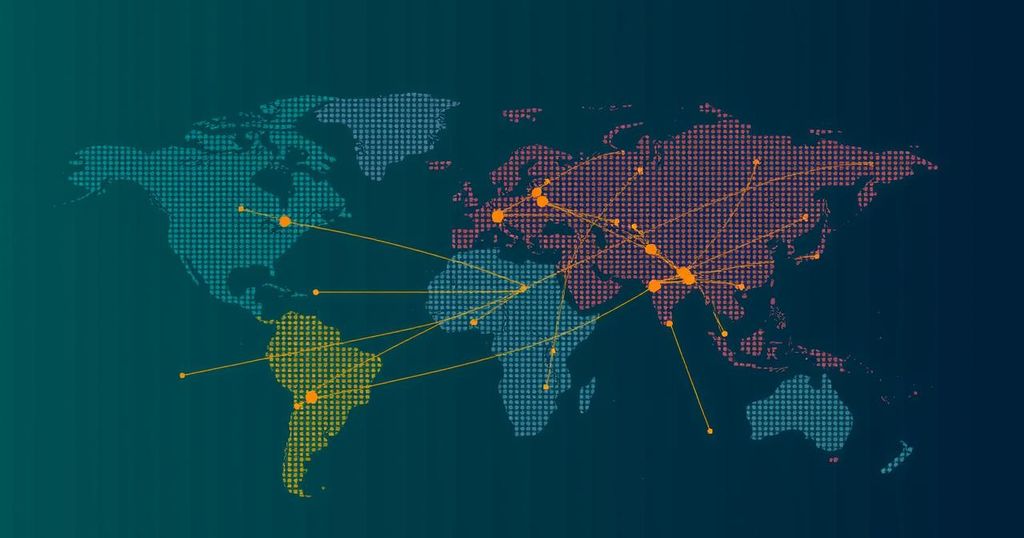World news
ASIA, DIDI KUO, FREEMAN SPOGLI INSTITUTE, FSI, GEOPOLITICS, HAMAS, HEZBOLLAH, INTERNATIONAL RELATIONS, ISRAEL, MARSHALL BURKE, MICHAEL MCFAUL, MIDDLE EAST, NATIONAL SECURITY, NORTH KOREA, OR, ORIANA SKYLAR MASTRO, RUSSIAN INVASION OF UKRAINE, STANFORD UNIVERSITY, WAR, YEMEN
Oliver Grayson
0 Comments
Understanding the Global Threat Landscape: Insights from FSI Scholars
The recent panel at Stanford University, featuring scholars from the Freeman Spogli Institute, examined significant global threats such as climate change, democratic erosion, international conflicts, and China’s rising influence. Experts emphasized the interconnectedness of these challenges and called for a proactive response to safeguard democracy and global stability, concluding that while progress has been made in some areas, much work remains to confront the crises effectively.
In a recent symposium at Stanford University titled “Global Threats Today: What’s At Stake and What We Can Do About It,” scholars from the Freeman Spogli Institute for International Studies (FSI) addressed various pressing challenges that our world currently faces. Moderated by Michael McFaul, the panel included insights from experts such as Marshall Burke, Didi Kuo, Amichai Magen, Oriana Skylar Mastro, and Steven Pifer, each highlighting critical issues: climate change, Russia’s aggression in Ukraine, China’s emerging power, the state of American democracy, and the geopolitical conflict between Israel and Hamas. The scholars collectively urged a heightened understanding of these threats and emphasized the interconnectedness of global affairs. Amichai Magen noted the rise of a coalition—referred to as the “axis of misery”—comprising Russia, Iran, North Korea, and China that threatens the liberal international order. The potential for conflict and the risk of state disappearance remain significant concerns, particularly for nations such as Ukraine, Taiwan, and Israel. Didi Kuo illuminated the internal threats to democracies worldwide, stating that many leaders undermine democratic processes from within after gaining power. However, she remains optimistic, pointing to successful pro-democracy coalitions in various countries as a beacon of hope. Steven Pifer countered the narrative of inevitable Ukrainian defeat, emphasizing the heavy toll on Russian forces and the resolute spirit of the Ukrainian people, asserting that sustained support for Ukraine is essential for regional stability. Oriana Skylar Mastro cautioned against underestimating China, despite its economic slowdown, arguing that its strategic expansion and influence pose a lasting challenge that demands a comprehensive U.S. response. Marshall Burke provided a note of cautious optimism regarding climate progress, detailing recent reductions in emissions and legislative advancements in green technology. However, he also warned of the extensive challenges that remain in confronting climate change effects. The panel underscored the pressing need for strategic vision and collaborative efforts to address these multifaceted threats to global stability.
The article discusses the complex and interconnected international challenges that the world faces today, highlighted during a panel discussion by scholars at Stanford University’s Freeman Spogli Institute for International Studies. It reflects on various global issues including climate change, democratic erosion, geopolitical aggression, and strategic competition, emphasizing the importance of understanding these threats comprehensively. The insights shared by the experts not only identify the dangers but also suggest pathways toward addressing them effectively, promoting awareness and action at both individual and collective levels.
The insights presented at the panel indicate that the world is at a critical juncture, facing numerous overlapping challenges that require urgent attention. The experts collectively advocate for a proactive and informed approach to countering threats from both external and internal forces, particularly emphasizing the need for sustained support for democracy, strategic engagement with global powers such as China, and robust climate action. Their perspectives highlight the interconnected nature of these issues and reiterate the importance of a cooperative and adaptive response across nations.
Original Source: fsi.stanford.edu




Post Comment